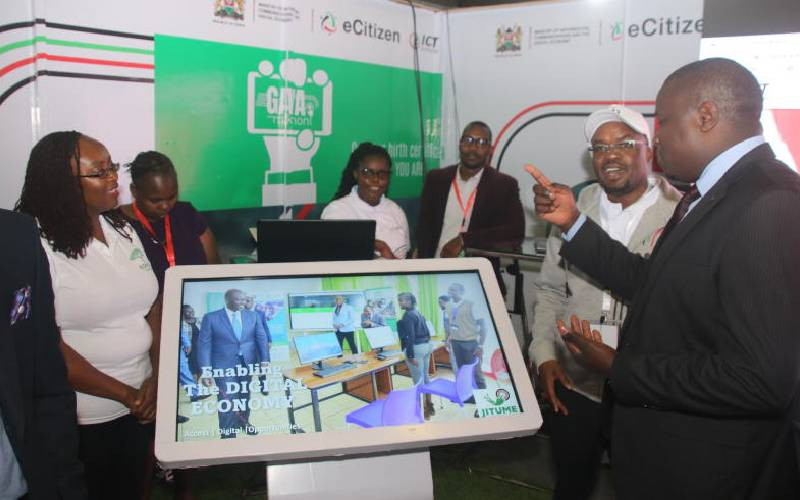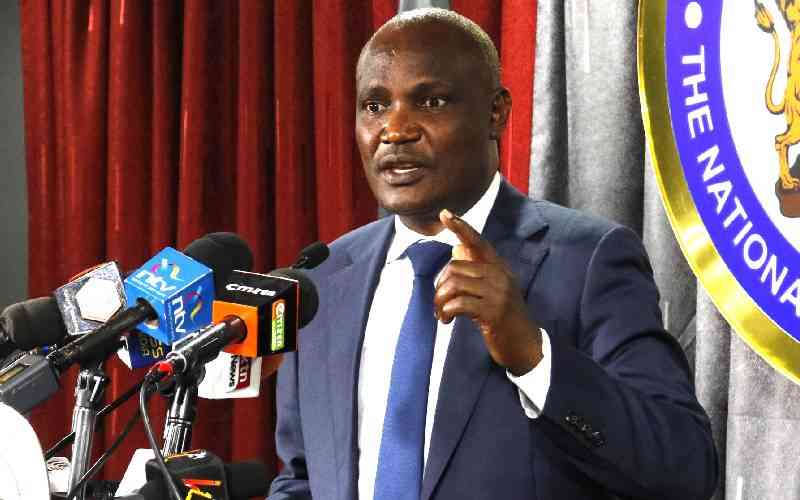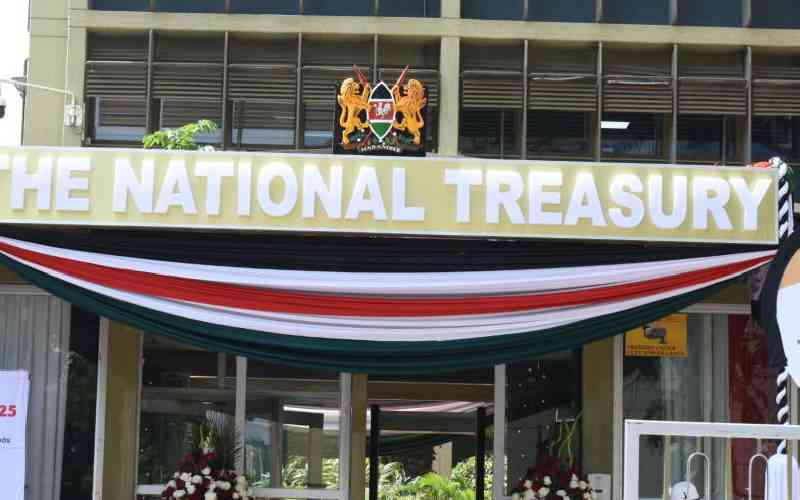
You will pay between Sh5 and Sh50 for transactions on eCitizen after Treasury Cabinet Secretary Njuguna Ndung'u gazetted the amounts.
The CS gazetted the new service fee to be charged on top of the charges one has to pay to access government services on digital platforms despite a court case filed by Kilifi Senator Stewart Madzayo.
Any government service that costs Sh199 and below will cost you Sh5 service fee.
According to the notice, a service that costs between Sh200 and Sh299 will cost you Sh10 while the next band of Sh300 to Sh499 will cost Sh20.
Transactions costing Sh500 to Sh699 will cost Sh25 while anything above Sh1,000 will cost Sh50.
With the notice, the government will likely be collecting the access fee. However, the notice was silent on who will be the beneficiary of the access fee.
Initially, Kenyans were paying Sh50 as a "convenience fee".
However, Madzayo in his case questioned why Kenyans were paying the fee without the backing of the law. Madzayo moved to court arguing that the Sh50 convenience fee is illegal as it is not backed by law.
Madzayo, a retired judge sued Ndung'u, Pesaflow Limited, the firm said to be running eCitizen, Kenya Commercial Bank and Equity Bank.
From a separate case, Pesaflow was incorporated on August 24, 2017.
In his case, Madzayo asserted that the Treasury informed Kenyans that it had developed the eCitizen.go.ke Digital Payments Platform.
According to him, the government gazetted various charges for its services but the Sh50 was not among those charges.
Payment process
He also questioned the role of Pesaflow in the payment process. He claimed that Pesaflow is not gazetted to collect administrative fee nor do Kenyans know what role it plays in eCitizen.
"Therefore, it begs the question, what exactly is the role of the first respondent in a transaction between the user of a government service and the government? Why does the eCitizen.go.ke platform, which is wholly government-owned, charge the said convenience fee which is then channelled to the first respondent?"
"Instead of charging a nominal administrative fee that would be a percentage of the payment made, the first respondent, which is not mentioned in the gazette notice, has been charging a 'convenience fee' of Sh50 regardless of the payment made," he argued.
The case stemmed from a visit to the National Museum.
Madzayo narrated that on October 2, 2023, he visited the Fort Jesus Museum with his children.
The senator told the court that he was asked to pay Sh100 per child, through the eCitizen.go.ke digital platform for his children to enter the museum.
Extra cash
According to him, he ended up paying Sh300, of which the extra cash was the convenience fee.
"The petitioner proceeded to pay since his children needed to access the museum facilities. The petitioner was dismayed at being charged a convenience fee that is equal to half (50 per cent) the substantive service fee and this caused him to want to find out the exact role that the first respondent plays in transaction between a user of a government service and the government," said Mwadzayo.
He said that after some research, he discovered that the platform is a wholly owned domain and portal of the government and it is the official Government Digital Payment Platform.
He argued that the notices by the government indicate that it would charge a nominal administrative fee per transaction which would be a pro-rated percentage of the payment made.
However, he asserted that the gazette notices did not specify who the beneficiaries of the nominal administrative fee would be nor did it specify the exact percentage of the payment that would be charged as the nominal fee.
Last year, President William Ruto issued a directive to on-board government services to a single Paybill Number. Ruto ordered the closure of all existing non-designated government Paybill Numbers.
 The Standard Group Plc is a multi-media organization with investments in media platforms spanning newspaper print
operations, television, radio broadcasting, digital and online services. The Standard Group is recognized as a
leading multi-media house in Kenya with a key influence in matters of national and international interest.
The Standard Group Plc is a multi-media organization with investments in media platforms spanning newspaper print
operations, television, radio broadcasting, digital and online services. The Standard Group is recognized as a
leading multi-media house in Kenya with a key influence in matters of national and international interest.











